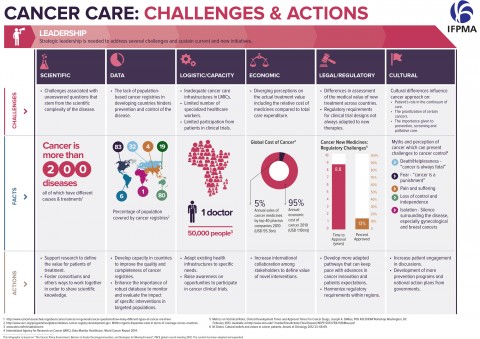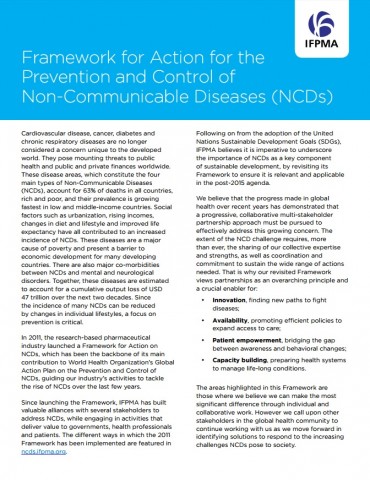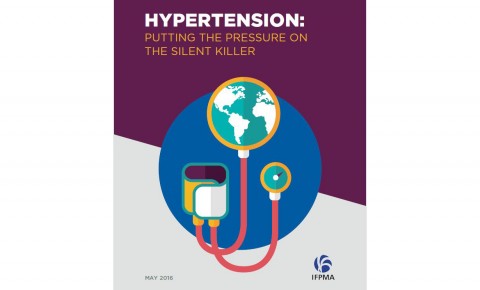
Tackling
Global health challenges
Non-communicable diseases
Non-Communicable Diseases
Non-communicable diseases (NCDs) are one of the major health and development challenges facing us today, and are the leading cause of death and disability worldwide.
Most NCD deaths are caused by cardiovascular diseases, cancer, diabetes, chronic respiratory disease and mental health and neurological disorders. Once considered a developed world problem, they now hit developing countries the hardest and pose mounting threats to public health and public and private finances worldwide.



NCDs account for 63% of deaths in all countries, rich and poor, and their prevalence is growing fastest in low and middle-income countries. Social factors such as urbanization, rising incomes, changes in diet and lifestyle and improved life expectancy have all contributed to an increased incidence of NCDs. These diseases are a major cause of poverty and present a barrier to economic development for many developing countries. There are also major co-morbidities between NCDs and mental and neurological disorders. Together, these diseases are estimated to account for a cumulative output loss of USD 47 trillion over the next two decades. Since the incidence of many NCDs can be reduced by changes in individual lifestyles – cutting tobacco use, harmful use of alcohol, unhealthy diets and physical inactivity – a focus on prevention is critical.
In 2011, IFPMA launched a Framework for Action on NCDs, which has been the backbone of our main contribution to WHO’s Global Action Plan on the Prevention and Control of NCDs, guiding our industry’s activities to tackle the rise of NCDs over the last years.
Since launching the Framework, we have built valuable alliances with several stakeholders to address NCDs, while engaging in activities that deliver value to governments, health professionals and patients (www.ncds.ifpma.org).
Following on from the adoption of the United Nations Sustainable Development Goals (SDGs), we have revised our Framework to underscore the importance of NCDs as a key component of sustainable development. Partnerships are an overarching principle and a crucial enabler for:
- Innovation, finding new paths to fight diseases;
- Availability, promoting efficient policies to expand access to care;
- Patient empowerment, bridging the gap between awareness and behavioral changes;
- Capacity building, preparing health systems to manage life-long conditions.
We believe that the progress made in global health over recent years has demonstrated that a progressive, collaborative multi-stakeholder partnership approach must be pursued to effectively address this growing concern. The extent of the NCD challenge requires, more than ever, the sharing of our collective expertise and strengths, as well as coordination and commitment to sustain the wide range of actions needed.

Investing in NCDs makes sense for sustainable development – it not only saves lives and promotes social cohesion, but improves economies and can reduce poverty.
38 million people worldwide
die from NCDs – more than all other diseases combined
40% of people
die from NCDs whilst in their most productive years
USD 7 trillion
is the cost of inaction on NCDs in developing countries over the next 20 years














